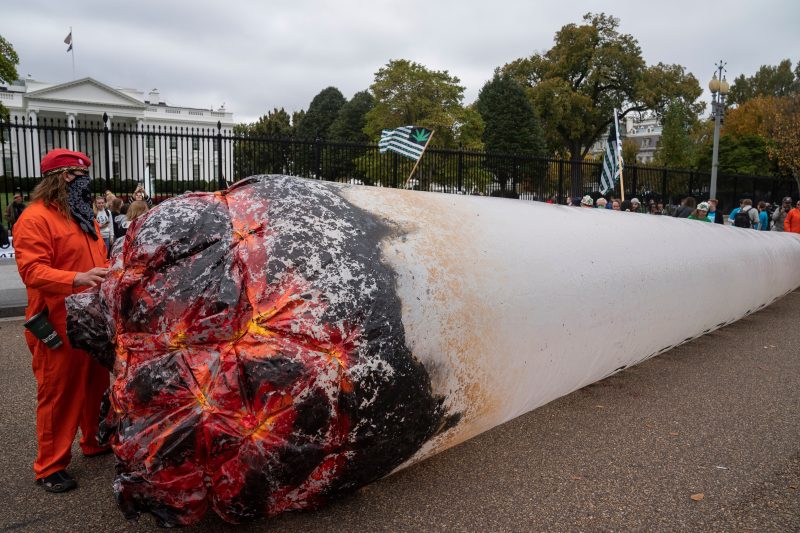In a strategic move aimed at bolstering their appeal to young and progressive voters ahead of the November elections, Democrats are pushing for the rescheduling of marijuana under federal law. The proposal to reclassify cannabis from its current status as a Schedule I drug signals a shift in the party’s stance on drug policy and could have significant implications for both the upcoming elections and the broader landscape of drug regulation in the United States.
This move comes at a time when public opinion on marijuana has shifted significantly, with a majority of Americans now supporting its legalization for recreational use. By aligning themselves with this growing sentiment, Democrats are seeking to position themselves as champions of drug reform and social justice, particularly in the wake of a nationwide reckoning on racial disparities in law enforcement.
One of the key motivations behind the Democrats’ push to reschedule marijuana is the potential economic benefits that would come with its legalization. With many states already having legalized cannabis for recreational or medicinal use, the industry has seen exponential growth in recent years, creating jobs and generating significant tax revenue. By removing federal restrictions on marijuana, Democrats hope to further stimulate this industry and tap into its economic potential.
Furthermore, the rescheduling of marijuana could have far-reaching implications for criminal justice reform. By declassifying cannabis as a Schedule I drug, the party aims to reduce the disproportionate impact of drug laws on minority communities, which have been disproportionately affected by harsh enforcement policies. Changing the legal status of marijuana could help to address the racial disparities in drug arrests and incarceration rates, a key priority for many Democratic voters.
In addition to the potential electoral benefits of supporting marijuana rescheduling, Democrats are also seizing the opportunity to differentiate themselves from the Trump administration and the Republican Party. While President Trump has expressed some limited support for states’ rights on marijuana legalization, his administration has taken a largely hands-off approach to federal drug policy, leaving significant uncertainty in this area.
By taking a proactive stance on marijuana rescheduling, Democrats are signaling their commitment to evidence-based drug policy and their willingness to tackle the complex issues surrounding drug regulation in the United States. While the proposal is likely to face strong opposition from conservative lawmakers and interest groups, it represents a clear statement of intent from the Democratic Party on this contentious issue.
In conclusion, the Democrats’ move to reschedule marijuana under federal law represents a significant shift in the party’s approach to drug policy and has the potential to have wide-reaching consequences for both the upcoming elections and the broader landscape of drug regulation in the United States. By aligning themselves with the growing public support for marijuana legalization, Democrats are positioning themselves as champions of drug reform and social justice, while also seeking to tap into the economic benefits of the burgeoning cannabis industry. This proposal is not only a strategic political maneuver but also a step towards addressing the racial disparities and injustices perpetuated by current drug laws.
